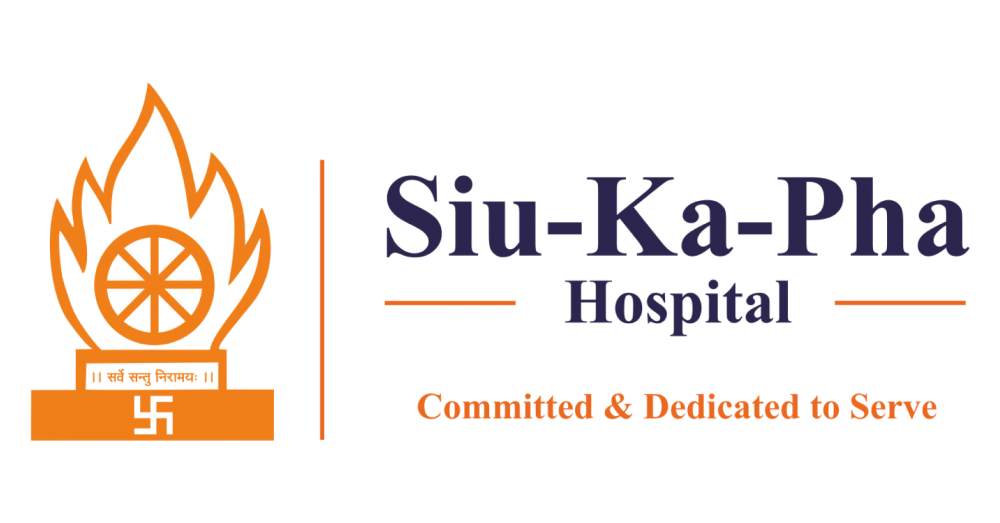Geriatric Care

Embarking on the journey of geriatric care demands a nuanced understanding of the unique challenges elderly individuals face, especially when they present in emergencies. As studies say, elderly patients in emergency departments are more likely to be admitted and require ICU care compared to their younger counterparts. It is a call to abandon careless attitudes and embrace a compassionate, specialized approach, a commitment embodied by institutions such as Sui-Ka-Pha Hospital. Join us in understanding the intricacies of elderly care and consider the invaluable resources available at Sui-Ka-Pha Hospital for comprehensive and empathetic healthcare tailored to the unique needs of our ageing population.
Challenges in Geriatric Care: Navigating Obstacles in Hospital Environments
Embarking on the specialized journey of geriatric care within hospital environments requires a keen understanding of the challenges faced by elderly patients. Unfortunately, the existing elderly care framework in hospitals presents specific obstacles, detracting from an ideal caregiving atmosphere. The challenges include:
- Little Privacy: The hospital environment often provides minimal privacy, impacting the comfort and dignity of elderly patients.
- High Volume, High Stress: Creating a less-than-optimal atmosphere for elderly care is crucial.
- Unpleasant Surroundings: It may contribute to discomfort, hindering the overall well-being of elderly individuals.
- Anxious, Worried Patients: The prevalence of anxiety among patients adds a layer of complexity to the care dynamic, requiring specialized attention.
- Limited Provider Time: Time constraints on healthcare providers can compromise the thorough and unhurried care that elderly patients often require.
- Noisy Environment: The noisy hospital setting, which is challenging for individuals with hearing deficits, further complicates communication and overall patient experience.
Acknowledging these challenges becomes a pivotal step in developing strategies and initiatives to enhance the quality of geriatric care. In our exploration of geriatric care, we delve into these issues and examine potential solutions within and beyond the hospital setting, aiming to create a more conducive and compassionate environment for the ageing population. Join us on this journey to understand the intricacies of providing tailored care for our elderly.
Recognizing Signs of Decline in Elderly Individuals
As individuals age, paying attention to subtle yet impactful changes in their well-being becomes crucial. Noticeable shifts in cognition, such as decreased short-term memory, forgetting medications, or periods of confusion, can signal underlying issues. Additionally, a history of falls, marked changes in behaviour or emotions, difficulty with daily activities, signs of self-neglect or home care challenges, and poor social support are indicators of potential decline in older adults. These factors are imperative, as they may point to ageing-associated diseases requiring specialized attention. Moreover, the strain on primary caregivers adds another layer to the complexity of providing adequate care for seniors. Recognizing these signs allows for proactive measures to address the evolving needs of elderly individuals and ensure a supportive and responsive care environment.
Determinants of Active ageing
Here are some determinants of active ageing:
- Economic determinants,
- Health and social services,
- Behavioral determinants,
- Social determinants,
- Physical environment, and
- Personal determinants.
Losses due to lack of expertise
- Research says that 20% of issues in elderly parents are related to their mental health, 40% of them have some form of disability, and 75% of them suffer from chronic diseases.
- The Longitudinal Aging Study in India says, “Growing at around 3% annually, the elderly population will rise to 319 million in 2050.
- As per the census of 2011, the 60+ population accounted for 8.6% of India’s population (103 million).
Hence, adequate knowledge and awareness of caring for elderly parent will tremendously support their health.
Most commonly noted health issues in elderly parents
- Obesity
- Eye disease
- Heart disease
- Diabetes
- Memory issues
- Cancer
- Emotional issues
- High blood pressure
- Anaemia
- Osteoporosis
- Osteoarthritis
- Gallstones
Understanding and addressing these prevalent health issues play a vital role in ensuring the well-being and quality of life of elderly parents.
Comprehensive Health Assessments: Building a Holistic Understanding
Conducting thorough health assessments is essential to understand an individual’s well-being comprehensively. This process involves delving into various aspects, including medical history, drug history, and surgery history, to establish a foundation of the individual’s physical health.
Recognition of Cognitive Decline for Holistic Planning
Early detection of diseases can enhance the probability of assuring the patient’s health. Also, it can address other concerns like health care finances, patient safety, and more.
Enhancing Care: Optimizing Medication Management
Optimizing patient care involves a conscientious approach to monitoring active medication lists and judiciously de-prescribing any unnecessary medications. This practice is not only essential for reducing the pill burden on patients but also mitigates the risks associated with adverse drug events while addressing potential financial challenges. Regular reassessment of medication regimens ensures that patients receive tailored and efficient treatment, aligning to enhance overall health outcomes. This proactive strategy underscores a commitment to patient-centered care, emphasizing safety, well-being, and a streamlined approach to medication management.
Unveiling Frailty in Older Adults
Frail older adults are at increased risk of falls, disability, hospitalizations, and mortality, necessitating early identification and intervention. Frailty requires careful recognition. Some of the symptoms of frailty are weakness, exhaustion, slow gait, poor balance, poor physical activity, etc. Addressing frailty promptly is essential for optimizing the well-being of the ageing population.
Essential Lifestyle Practices for Healthy Aging
- Regular Exercise
– Focus on muscle strength and joint flexibility.
- Healthy Diet
– Embrace a balanced and nourishing eating plan.
- Hydration
– Prioritize adequate water intake for overall health.
- Brain Exercises
– Engage in activities that stimulate cognitive function.
- Comprehensive Self-Care
– Attend to skin, eyes, ears, and teeth for holistic well-being.
- Regular Check-Ups
– Proactively monitor health through routine medical examinations.
- Staying Active
– Keep busy with meaningful activities for a fulfilling lifestyle.
Nurturing Well-Being Through Empathy and Collaboration
Creating a nurturing environment for seniors involves a multifaceted approach to enhance their well-being. It’s crucial to make elders feel at home, cultivating an environment where they can be lively and happily involved with family members.
In conclusion, senior care is a multifaceted endeavour crucial for the well-being of older people. Institutions like Sui-Ka-Pha Hospital exemplify this commitment, providing expert and personalized services. Also, Sui-Ka-Pha Hospital provides personal care to the patients by offering the feel of a home by aayas. For those navigating the challenges of ageing, a visit to Sui-Ka-Pha Hospital offers a path towards enhanced well-being and a more fulfilling journey in the later stages of life.






















 Call Us
Call Us Book Appiontment
Book Appiontment